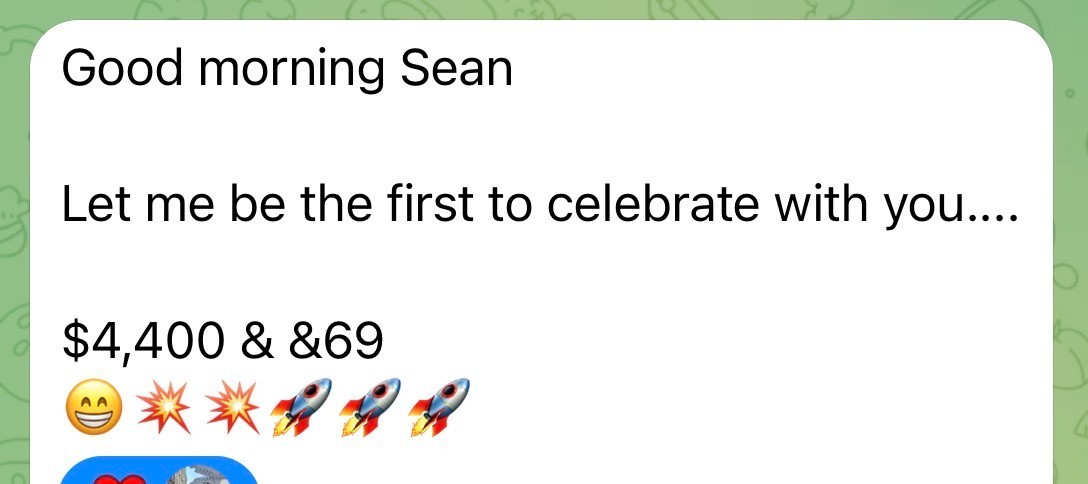Posted August 22, 2023
By Byron King
Four Real Asset Picks From Byron King!
- Let’s preserve our wealth with hard, tangible assets.
- Byron talks about plays in the most crucial base metal of all.
- Read down to the bottom to see which four companies Byron likes.
Happy Tuesday!
I never let a chance to showcase Byron King’s excellent work in the Rude go by.
He’s the best in the business when it comes to metals and mining. And I love to read his incredibly informative stuff, not just for the picks and advice but for his excellent storytelling ability.
Have fun with this one, and see if one of these plays works for you.
All the best,
- Sean
Four Real Asset Picks From Byron King!
In this article, we’ll discuss mining, metals, and how to use hard assets – aka “real things” – to preserve wealth in a fast-changing world where the dollar's value is shrinking.
But first, I want to tell you what happened in the Minneapolis airport as I passed through on a flight from Vancouver during the return leg of a trip to Canada.
“Nobody Goes to Eritrea.”
I stopped at a newsstand to buy… yes… a newspaper. The checkout clerk was a not-quite middle-aged woman, dark-complected. She wore a name tag that said “Kotb.” She was friendly and very courteous.
On my end, I like to reinforce habits of friendliness and courtesy. So, to make conversation, I said, “Kotb, that’s a nice name. In Arabic, doesn’t it mean something like straight and pure, like the northern direction of the pole star?”
She smiled and said, “Yes, not too many people know that. Have you been to the Middle East? I am from Eritrea.”
To which I replied, “I’ve spent some time over there. In fact, I’ve actually been to Eritrea.”
At this point, Kotb looked at me skeptically, tilted her head back, and said, “No. Nobody goes to Eritrea.”
And I said, “Oh yeah? I have my passport, and I can show you a visa, issued by no less than the Eritrean embassy in Washington.” At this point, I reached into a pocket and pulled out the documentation.
Kotb looked at the visa, with its fancy writing and decorative printing, then looked at me and said, “Oh, you must be in the mining business. Because nobody else ever goes to Eritrea.”
I suspect that Kotb was correct. Few outsiders travel to Eritrea, certainly not many Westerners, because the place is not exactly on the tourist circuit.
Nor is traveling to Eritrea convenient. Indeed, just to get to the capital city of Asmara, I had to fly out of Doha, Qatar, then track southwest over Saudi Arabia and the Red Sea.
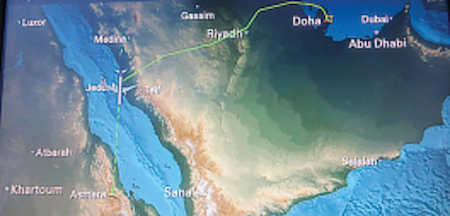
BWK photo.
And as I mentioned above, and still, as far as I know, you need a hard-to-get visa to enter Eritrea, which typically requires a sponsor, such as a mining company, to vouch for you.
A Long Wait and the Struggle for Prosperity
Eritrea is an ancient land. Anthropologists have discovered humanoid remains there, which date back about a million years. More recently, it was an Italian colony from the 1870s onwards. In the leadup to World War II, it served as the staging point for Mussolini’s invasion of Ethiopia in 1935.
The British army wrecked much of the country during the war. This wreckage included a key east-west railway from the Red Sea coast to the country’s interior, an artery of commerce almost crossing the Sudan border.
Postwar, Eritrea was unwillingly (if not forcibly) annexed to Ethiopia. Sad to say, the southern neighbor behaved like an overbearing, exploitative colonial master rather than a cooperative partner in a national federation. Before long, Ethiopian corruption and misgovernance led to Eritrean resistance, which transformed into a festering war from the 1960s to the 1990s. Among other things, the long conflict left armored relics littered across the landscape.
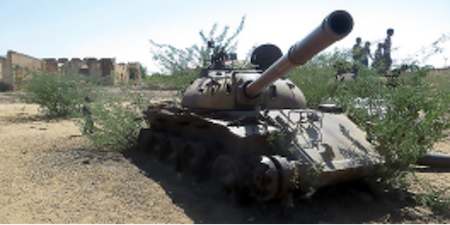
Wrecked Ethiopian tank from the days of war. BWK photo
Even today, Eritrea still has not resolved its border disputes with Ethiopia. While overall, the nation remains quite poor, although it hosts several mining ventures; I visited two projects while I was there. And as is the case with many emerging and developing countries across the globe, the political and economic struggle continues.
When the West Doesn’t Hear You, Turn East.
Right now, it’s fair to say that the struggle of Eritrea, and many other countries in similar straits, has distilled into a potent collective, geopolitical movement that affects us all, or will in the near- term, meaning probably this year.
Along these lines, recall what’s happening with the BRICS nations; Brazil, Russia, India, China, and South Africa, which Jim described in a deep-dive discussion in the June issue of Strategic Intelligence. This organization will meet in South Africa towards the end of August, and it’s more than clear that we should expect important developments.
Among anticipated outcomes, we’ll likely see a move to expand BRICS membership to include many more nations. These countries will join BRICS and add significant numbers of people, land areas, natural resources, geographic positions, economic outputs, and much else.
For example, expect Saudi Arabia, one of the world’s three largest oil-producing nations, to become a formal member of BRICS. So, at the very least, BRICS will become larger and, in all ways, a more significant player in the world scene.
Then there’s the issue of a BRICS currency unit, a means for nations and trading blocs to untether from the shackles of the U.S. dollar, the euro, and/or British pound. Likely, this won’t be an instant development. Don’t expect to see an overnight, competing, gold-backed unit of money. But we can expect to see the outlines of a future mechanism for world trade to evolve away from the use of Western currency, let alone Western banks or bankers.
With this in mind, consider what the president of Eritrea, Isaias Afwerki, recently said at a major conference in St. Petersburg, Russia, before a gathering of almost all heads of state from the African continent:
The West (meaning the U.S. and European Union) “is printing money. They are not manufacturing anything at all; it is all about printing money. And this is one of their weapons. The global monetary system is controlled by the dollar, and the euro is being used.
They are introducing sanctions and freezing accounts – these are their tools. This is not going to continue indefinitely. We need a new financial architecture, globally, one that is not controlled by the euro, the dollar, or other currencies.”
This commentary reflects a school of thought that’s quite common across the emerging and developing world. That is, many people and governments want a “new financial architecture.” In this sense, it’s fair to say that Mr. Afwerki is not alone in his anti-Western sentiments, particularly as they pertain to dollar or euro hegemony, because the leaders of many other nations have expressed similar views.
And consider the evident disdain in Afwerki’s comment about how the West is “not manufacturing anything at all.” Well, that’s inaccurate because the West manufactures quite a bit of almost everything, and many of those goods include high levels of technology. I mean, aerospace, computers, and medical devices speak for themselves.
But the man’s comments reflect a sense of long-term political and social frustration within developing nations; that is, of their appeals to the West that rebound and create a sense of not being heard, or worse, ignored, exploited, and disrespected.
The raw history is that for the entire postwar period (meaning the Second World War, which ended in 1945), most emerging nations have been a source of energy, minerals, and commodity agricultural products for the developed world and not much else unless they also served as tourist destinations. And guess what? These long-suffering, post-colonial emerging nations know it and are now in a position to do something about it.
The Looming Reboot of Cultural and Political Forces
All in all, the world is on the cusp of a reboot – a realignment, one might say – of cultural and political-economic forces. The current ossified global situation, all tied together with Western currency and banking, is about to change in a big way, and BRICS will serve, in a metaphorical sense, as a geopolitical icebreaker.
That is, the new, expanded BRICS entity will clear a path for its members and the rest of the world to move up the development ladder. Think of the possible future of Africa, with a large whack of South and Central America as well.
Or look at it this way. In the past, when underdeveloped nations produced something – minerals, energy products, agriculture goods, or some other commodity-type item – the output was always priced in dollars, usually with the number set on one or another exchange in London, New York, or other Western venues. And the producing nation could take it or leave it.
But with the new BRICS approach to international trade and using that organization’s version of a currency unit, many goods produced in a developing nation will find price levels that are far more independent of Western manipulation. That’s the idea, anyhow.
Meanwhile, with a BRICS unit in effect to facilitate trade, more and more of present-day world commerce will not require dollars to set prices, let alone to buy or sell stuff. And many dollars that are currently overseas, serving as the underlying means for transactions, will migrate back to the U.S., where those Federal Reserve units will contribute to domestic monetary inflation.
In other words, what happens overseas won’t stay overseas. Because for over fifty years, the U.S. has routinely exported to the world the consequences of its inflationary domestic monetary policies. Now we – that is, we in the U.S. and related economies – are about to confront a major reversal in monetary fortunes. So, stand by for a breakout in persistent inflation.
How to Remain Ahead of the BRICS Developments and Inflation
Okay, inflation is coming. What’s your plan?
Cash in the bank is always nice because you want to be able to pay the bills (and taxes, alas). But inflation will rob cash of purchasing power over time, and it’s just a question of how much you’ll lose every year. So, cash is a short-term salve, although having some feels good.
Other standbys include real estate, but the adage of “location-location-location” is critical. And what happens to the price mechanism of, for instance, U.S. land when the dollar inflates? What does “value” even mean when that happens, certainly when it comes to buying or selling?
And don’t forget about other “real” things, like tools, machines, and spare parts that may become quite valuable as global trade patterns shift, and some items become hard to find, if not unavailable in a transformed economy.
This brings us back to hard assets like energy, precious metals, and related base metals critical to keeping the world running.
Let’s Talk About Copper
I’ll round this out by discussing a more base-metal idea, mostly involving copper.
I say “mostly involving copper” because most copper deposits are poly-metallic; that is, there’s copper, plus (not uncommonly) associated amounts of gold, silver, and perhaps lead, zinc, molybdenum, and other elements. It all depends on geology and geochemistry.
Copper has strong days ahead for all manner of reasons. Up front, I’ll say that sure, if there’s a near-term recession then the economy will slack off, and copper prices will fall; but on the other side of that, there’s exploding demand, coupled with absolutely baked-in future shortages and higher prices.
At the basic level, consider one thing: about three billion (billion with a “b”) people worldwide have access to no or minimal electric power.
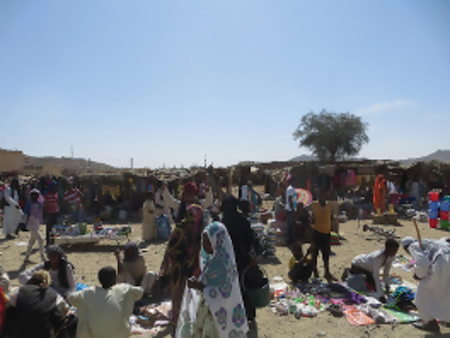
Eritrean town and market square; not a power line or light bulb in sight. BWK photo.
Almost all of these souls live in developing lands like Eritrea (see above) or other similarly unprivileged locales across the globe. And just to string a few simple wires and light bulbs to these fellow earthlings will require immense volumes of copper.
Indeed, and ironically, many places on earth with little or no electric power also happen to be areas where mining or other resource exploitation removes valuable products that ship out to the distant, developed world. So, you can get a feel for the resentment we see in the comments of future BRICS members.
Meanwhile, the rest of the world is also on a development fast track, with everything you see in the YouTube videos, such as massive high rises popping up across China and sprawling urban landscapes from Mexico City to Lagos, Nigeria.
And then throw in the developed world, with its focus on becoming “green” by taking gasoline cars off the roads and replacing them with electric vehicles (EVs). (And don’t fret; for every barrel of oil that the West doesn’t burn in its future car fleet, the developing world will find a use.)
Along the foregoing lines, one figure I like is that your internal combustion vehicle has about 50 pounds of copper in it, give or take; it’s used in the alternator, wiring, etc. But add it all up, and it’s about 50 pounds.
Now, take an EV apart, weigh everything, and get about 250 pounds of copper. This is for the traction motors, batteries, wiring, and everything else. An EV uses about five times as much copper as an old gasoline burner. And multiply that by tens of millions in terms of the projected output of new EV cars by the global auto industry in the years ahead.
Right away, you can see that the world needs lots more copper and that copper miners have many good years ahead; well, many good years as long as they have access to copper resources and can mine ores, smelt them, and refine metal. And on this last point, you want companies with low levels of political risk.
Opportunities In The Copper Space
I should also note that the market has been bidding up the share price for strong copper companies. So even now, the charts are on the high side. But I believe there’s more upside ahead in the years to come. We’re early in this part of the copper cycle.
You’re probably familiar with the names of a couple of the biggest big guys in copper.
For example, there’s Rio Tinto Group (NYSE: RIO). At over $100 billion market cap, it’s global and diversified. It produces copper and many other metals, materials, and related products. Rio has a deep bench of technical talent and access to capital for operations and expansion.
Then there’s Freeport McMoran (NYSE: FCX). This one is large at about $65 billion market cap. And it’s global, with many mines and various metals coming out of the facilities. Plus, many great people and access to capital.
If you want a smaller company, look at Toronto-based Lundin Mining (OTC: LUNMF), with a market cap of about $7 billion. It has projects worldwide, in North and South America and Europe. It’s well run, with a substantial upside from a lower capitalization level.
Finally, I’ll mention an advanced-stage developer that works in the copper space and is pioneering new technology in exploration and production, namely Ivanhoe Electric, Inc. (NYSE: IE). The market cap is about $1.6 billion, with a stellar list of projects in some of the best copper districts in the U.S. I won’t go deep into details, but this one is a rising star.
Note that these ideas are not “official” recommendations. But I do follow the companies. If you buy, use limit orders. Always take advantage of down days in the market. And never chase momentum.
As we confront a fast-changing global economy, remember that “real things’ continue to make the world go round. And copper demand will play a significant role in both the developed and underdeveloped nations of the world. The days of “Nobody goes to Eritrea” are ending.
That’s all for now… Thank you for subscribing and reading.

The Shape of Things to Come
Posted December 29, 2025
By Jim Rickards
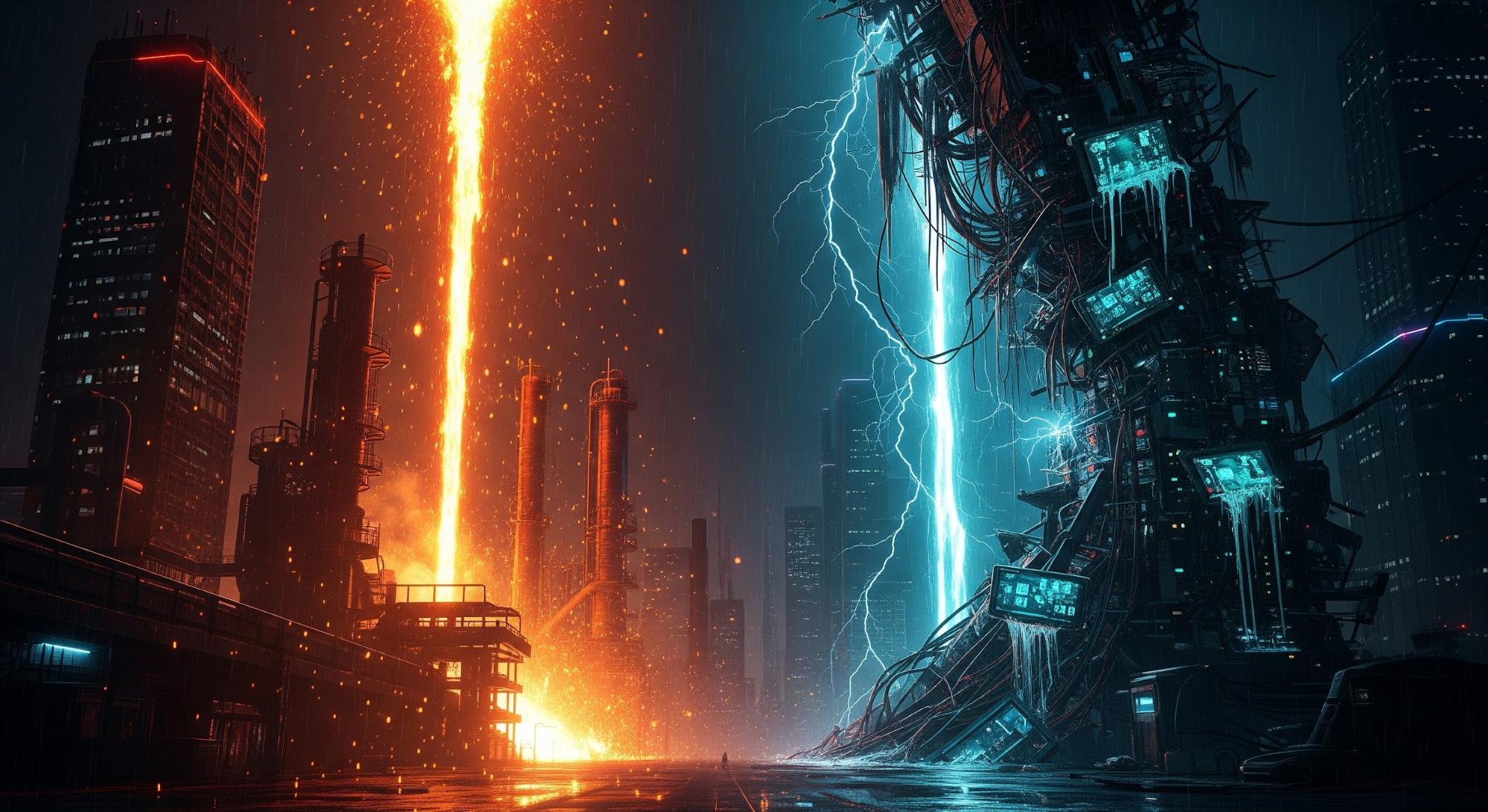
A Copper Melt-Up in 2026, and “Tech” Meltdown
Posted December 26, 2025
By Byron King

Bonding Over Christmas
Posted December 25, 2025
By Sean Ring

Oil Off The Boil
Posted December 24, 2025
By Sean Ring

Gold Bars, Up Bars, and FUBAR
Posted December 23, 2025
By Sean Ring
